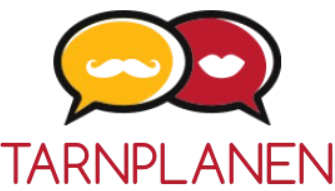Introduction to TheHRWP Revolution
The modern workplace is evolving faster than ever, reshaping how we connect, collaborate, and contribute. As organizations face new challenges, the need for innovative solutions in HR management has never been more critical. Enter TheHRWP Revolution—a fresh approach that reshapes how we think about human resources in today’s dynamic workplace. This movement isn’t just a trend; it’s a transformative philosophy designed to streamline processes and enhance employee experiences.
Picture a work culture where skills are nurtured, dialogue is effortless, and every individual feels seen and appreciated. That’s the vision behind TheHRWP, which aims to elevate traditional HR practices into modern strategies that resonate with employees and employers alike. With technology advancing rapidly and workforce demographics shifting dramatically, there has never been a better time to explore this revolutionary approach.
Join us as we delve deeper into what TheHRWP Revolution entails, its core principles, and real-life success stories from organizations reaping the benefits of this innovative methodology. Get ready to rethink HR management like never before!
The Evolution of HR Management
Human resource practices have transformed dramatically, moving from basic administration to strategic empowerment. Initially, it focused primarily on administrative tasks like payroll and compliance. The role was largely reactive, addressing issues as they arose.
As businesses grew more complex, so did the demands of HR. The 20th century saw a shift towards employee relations, emphasizing communication and engagement. This transformation marked the beginning of viewing employees as valuable assets rather than mere resources.
The rise of technology in the 21st century further revolutionized HR practices. Digital tools streamlined processes such as recruitment and performance tracking. Data analytics emerged as a powerful resource for making informed decisions about workforce management.
Today’s HR landscape is dynamic and strategic, aligning closely with business goals. Modern HR professionals play an essential role in fostering culture and driving organizational change through innovative approaches that prioritize employee well-being and development.
Challenges with Traditional HR Approaches
Traditional HR approaches often rely heavily on outdated methods and processes. Such gaps can cause delays, bogging down critical decisions and reducing overall agility.
One major challenge is the one-size-fits-all mindset. Every organization has unique needs, yet many HR departments apply generic solutions without considering specific contexts. This can result in disengaged employees who feel their individual circumstances are overlooked.
Additionally, traditional systems frequently depend on manual data entry and paperwork. Mistakes occur easily, hindering productivity and creating frustration among staff.
Communication barriers also arise with antiquated practices. Employees may feel disconnected from HR teams when interaction relies solely on formal channels like emails or memos.
Compliance-driven mindsets can stifle innovation within organizations. When focusing primarily on rules rather than fostering a culture of growth, creativity suffers, limiting potential advancements in workplace dynamics.
TheHRWP Philosophy and Methodology
At its core, TheHRWP champions an all-encompassing view of HR that blends people, purpose, and performance. It emphasizes the importance of people as the cornerstone of any organization.
At its core, TheHRWP promotes collaboration and transparency. This ensures that employees feel valued and engaged in their roles.
The methodology integrates technology seamlessly with HR processes. By leveraging data analytics, organizations can make informed decisions about talent management and workforce planning.
Training is an essential component of this framework. Empowering teams with continuous learning opportunities fosters growth and adaptability within the workplace.
Additionally, TheHRWP encourages open communication channels. This cultivates a culture where feedback is welcomed, driving innovation and improvement across all levels of the organization.
Key Principles of TheHRWP Revolution
TheHRWP Revolution is grounded in several key principles that redefine the way organizations approach human resources.
First, it emphasizes adaptability. The modern workplace demands flexibility, and HR must pivot with changing trends to remain effective.
Collaboration is another cornerstone. By fostering a culture of teamwork, organizations can break down silos and encourage innovation within their teams.
Data-driven decision-making plays a crucial role as well. Leveraging analytics allows HR professionals to make informed choices that align with business objectives and employee needs.
The focus on employee experience cannot be overstated. Prioritizing individual growth and satisfaction leads to enhanced engagement and retention across all levels of an organization.
Each principle interconnects seamlessly, forming a robust framework for transforming traditional HR practices into dynamic strategies that meet today’s challenges head-on.
Case Studies: Real-Life Examples of Successful Implementation
A leading tech startup implemented theHRWP approach to streamline its recruitment process. By integrating AI-driven tools, they reduced hiring time by 40%. The new system increased candidate satisfaction as their needs were prioritized throughout the application journey.
In another instance, a healthcare organization faced high employee turnover rates. Adopting theHRWP methodology transformed their onboarding experience. New hires received personalized training and mentorship, resulting in a remarkable 30% retention increase within six months.
An established retail chain used theHRWP framework to enhance team collaboration across departments. By fostering open communication channels and regular feedback loops, productivity soared. Employees felt empowered to voice ideas and concerns, driving innovation from within.
These case studies highlight how diverse sectors can leverage theHRWP principles effectively. Each story reflects improved efficiency and workplace culture through targeted implementation strategies tailored to specific industry challenges.
Benefits and Impact of TheHRWP Revolution on Organizations
TheHRWP revolution brings a transformative wave to organizational culture. Companies adopting this approach experience enhanced employee engagement, as team members feel valued and supported in their roles.
Increased productivity often follows the implementation of TheHRWP principles. When employees are aligned with company goals and equipped with efficient tools, they can focus on delivering results rather than getting bogged down by outdated processes.
Moreover, organizations benefit from improved adaptability. With a dynamic HR model, companies can respond swiftly to changing market demands and workforce needs. This agility fosters innovation and drives growth.
Employee retention rates also see a positive shift. When companies invest in growth and wellness, they cultivate loyalty and build a workplace people are proud to call their own.
This stability is key in today’s competitive landscape.
Embracing TheHRWP revolution contributes not just to individual success but also builds resilient teams ready for future challenges.
How to Adopt TheHRWP Approach in Your Workplace?
Adopting theHRWP approach in your workplace begins with understanding its core principles. Start by educating your team on the philosophy behind it. Conduct workshops or training sessions to familiarize everyone with this modern perspective.
Next, assess your current HR processes. Identify areas where traditional methods fall short and can be enhanced by theHRWP strategies. This reflection helps pinpoint specific changes needed for a smoother transition.
Engage employees in the process. Gather their feedback and suggestions as you implement new practices. Their insights will foster a sense of ownership and commitment to the transformation.
Additionally, leverage technology. Utilize platforms that align with theHRWP methodology, making data-driven decisions more accessible and impactful.
Measure success regularly through key performance indicators (KPIs). Adapt based on outcomes to ensure continuous improvement within your organization’s HR management framework.
Conclusion: Embracing the Future of HR Management
As organizations grapple with the rapidly changing landscape of work, embracing innovative approaches is more crucial than ever. TheHRWP revolution presents a fresh perspective on HR management that aligns closely with modern workforce needs. By breaking away from traditional methods and adopting principles centered around flexibility, engagement, and technology integration, companies can better navigate challenges and foster a positive workplace culture.
Implementing TheHRWP approach not only enhances employee satisfaction but also drives productivity and organizational success. With real-life case studies showcasing its effectiveness, it’s evident that this methodology paves the way for future advancements in HR practices.
The journey toward transforming HR management might seem daunting at first, but taking small steps towards adopting TheHRWP philosophy can yield significant benefits. Organizations willing to embrace these changes will find themselves better equipped to meet the demands of today’s dynamic workplace environment.
Transitioning into this new era of human resources means fostering an adaptable mindset within your teams. So why wait? Start exploring how you can integrate elements of TheHRWP into your HR strategies today—your organization’s future may just depend on it.











